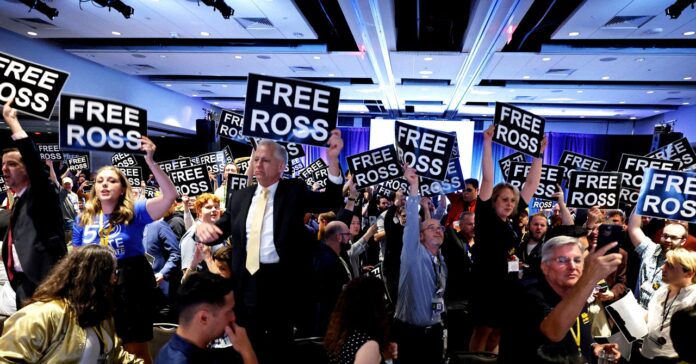A little over 11 years and three months ago, Ross Ulbricht was arrested in the science fiction section of a branch of San Francisco’s public library, caught with his laptop still logged into the Silk Road, the world’s first dark web drug market that he created and ran under the pseudonym the Dread Pirate Roberts.
Now, after being sentenced to life in prison and spending more than a decade behind bars, Ulbricht will walk free, thanks to Donald Trump—and to the president’s ever-closer ties to the American cryptocurrency world.
“I just called the mother of Ross William Ulbright to let her know that in honor of her and the Libertarian Movement, which supported me so strongly, it was my pleasure to have just signed a full and unconditional pardon of her son, Ross,” president Trump wrote on Truth Social on Tuesday evening, misspelling Ulbricht’s last name. “The scum that worked to convict him were some of the same lunatics who were involved in the modern day weaponization of government against me. He was given two life sentences, plus 40 years. Ridiculous!”
For close to two and a half years after Ulbricht created the Silk Road in 2011, the dark web site facilitated the sale of vast amounts of narcotics, as well as counterfeit documents, money laundering services and, at times, guns, for hundreds of millions of dollars in Bitcoin payments. After the FBI located the Silk Road’s server in Iceland in 2013 and arrested then-29-year-old Ulbricht in San Francisco, he was convicted on seven charges relating to the distribution of narcotics, money laundering, and computer hacking, as well as a “continuing criminal enterprise” statute—sometimes known as the “kingpin statute”—usually reserved for mob bosses and cartel leaders. In 2015, he was sentenced to life in prison, a punishment beyond even the 20-plus years that prosecutors in the case requested.
Since then, a Free Ross movement has steadily pressed for Ulbricht’s release, first in a failed appeal, then in petitions for clemency. Many of Ulbricht’s supporters have long argued that the Silk Road was a principle libertarian experiment in free trade, one in which Ulbricht allowed only “victimless crime”—despite prosecutors demonstrating at his trial that at least six people died of opioid overdoses from drugs linked to the Silk Road. They point out that Ulbricht never actually sold or possessed drugs himself, and rather ran a website that facilitated their sale. And they argue that by moving the sale of narcotics online, he reduced violence in the drug trade and committed no violence himself.
Those allegations murder-for-hires, in fact, dissuaded the first Trump administration from granting clemency to Ulbricht: The White House in 2020 considered freeing Ulbricht but ultimately rejected the idea because of the alleged role of violence in the case, according to one former government official involved in the process who spoke to WIRED on condition of anonymity.
Source : Wired






